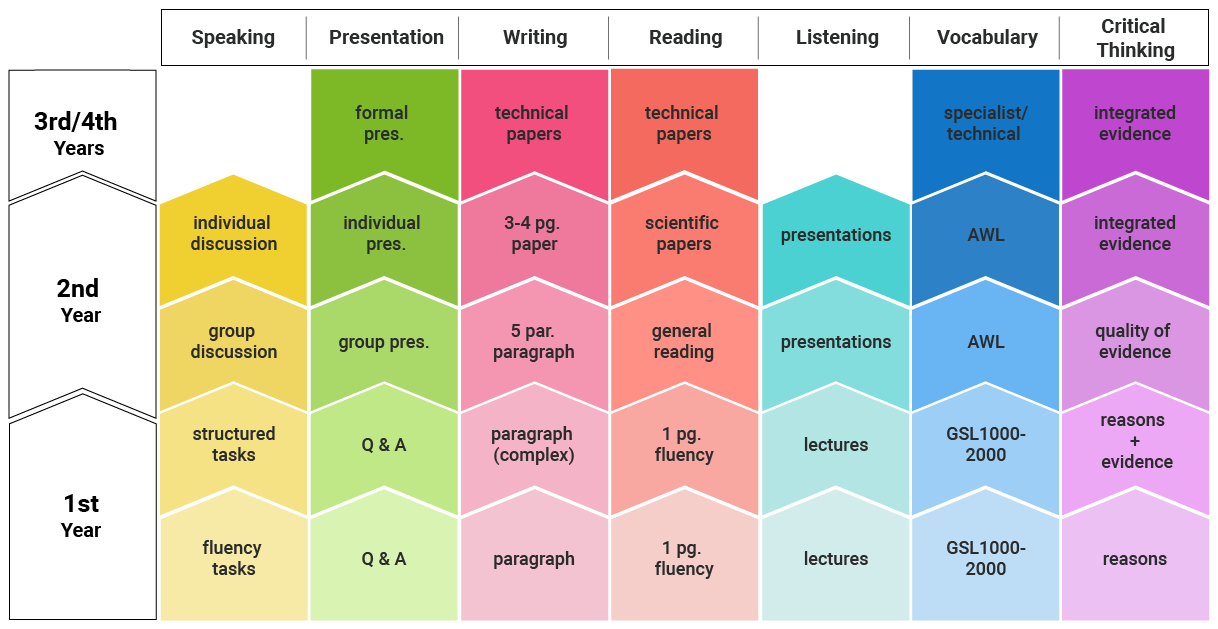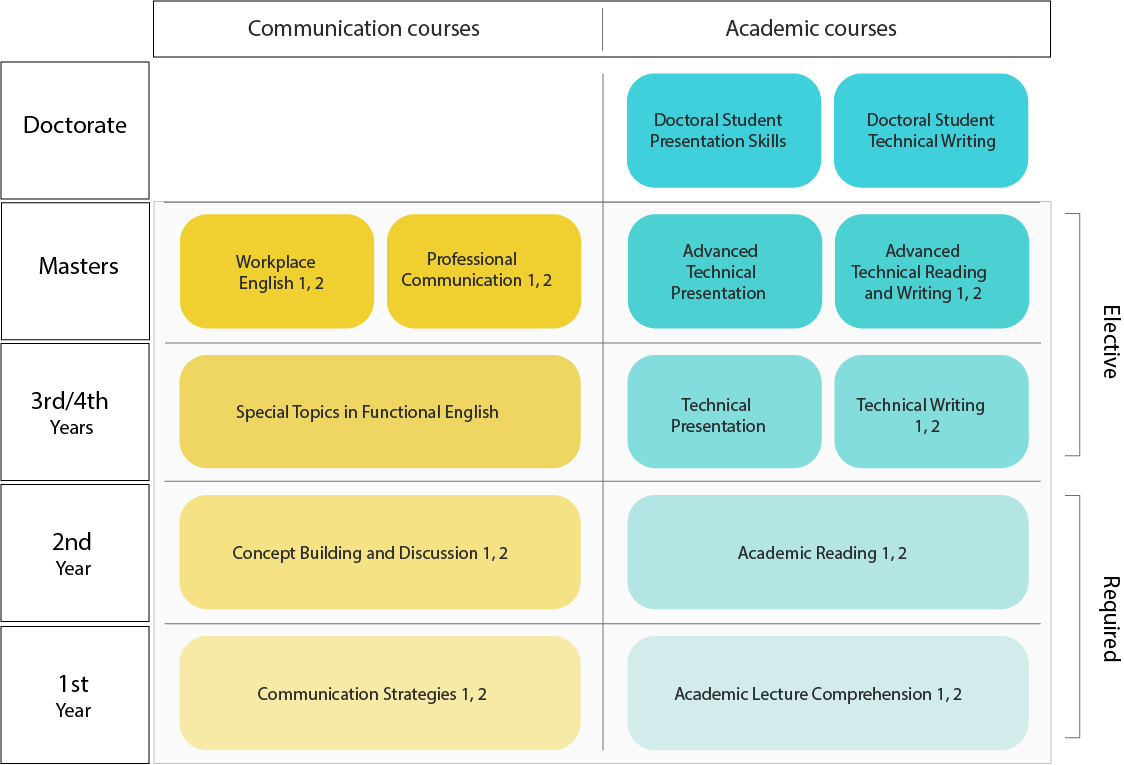
The members of CELESE oversee two distinct English programs in the Faculty of Science and Engineering at Waseda University. The larger program is for the vast majority of students—a mixture of mostly domestic but also some international students who work towards their degree taking courses mainly in Japanese within their fields of study. This may be referred to as the Japanese-degree program. The smaller program is for students who work towards their degree taking courses in English. This may be referred to as the English-degree program.
The program is designed to serve the needs of the students of the Faculty of Science and Engineering at Waseda University in the short-term as they progress through their student years and also in the longer term as they move on to graduate studies and then their professional lives.

The courses that CELESE provides can be broadly described in two tracks: a sequence of communication-oriented courses and a sequence of academic skill development courses. Students are required to take eight CELESE courses during their first two years. These courses are designed to move them from the general English skills development courses they took in their high school years and develop their ability to carry out collaborative scientific research projects with other students. They learn how to get information and knowledge via spoken and written resources, critically evaluate this information through discussion with others while planning research-oriented activities, and then communicate their discoveries to others in both spoken and written forms.

In their later undergraduate years, students join laboratories in their respective departments and begin to engage in scientific research under the direction of their lab advisers. To support students’ efforts to begin to communicate with the academic community about this work, CELESE offers elective courses in technical writing and presentation as well as content-based courses in special topics such as mathematics, chemistry, data science, speech, and cognition.
A majority of science and engineering students continue to graduate education where they engage in deeper research projects. To support these students as well as doctoral students in joint programs with other Tokyo-area universities, CELESE offers more advanced technical writing and presentation courses that are specific to these students’ specialized needs. Also offered at the graduate level are courses designed to prepare students for communication in their professional workplaces.
Students in the English-degree program include a mix of domestic and international students who do all of their science and engineering course work in English. In order to help these students get ready to engage in such academic work as soon as possible, CELESE members provide a set of courses focusing on English-based science communication skills, including discussion and debate, scientific presentations, and scientific writing.
Students who enter the program in April take classes taught by CELESE members during their first semester, these include: Academic Reading, Academic Lecture Comprehension, Communication Strategies and Concept Building and Discussion.
The courses that CELESE provides are designed to move them from the general English skills development courses they took in their high school years and develop their ability to carry out collaborative scientific research projects with other students. They learn how to get information and knowledge via spoken and written resources, critically evaluate this information through discussion with others while planning research-oriented activities, and then communicate their discoveries to others in both spoken and written forms.
In a world that is becoming ever more interconnected, scientists and engineers must have English skills to succeed in both academia and the workplace. It was with this vision that the Center for English Language Education in Science and Engineering (CELESE) was created in the Faculty of Science and Engineering of Waseda University in April of 2004. CELESE started with just four full-time faculty members, who were given the mission to radically overhaul the existing English program to better serve students’ needs in an increasingly international world. In 2004, the English program comprised of just one 1st year required English course, one 2nd year elective course that could complete a student’s language requirements for graduation, and several other 3rd and 4th year optional courses. Between 2004 and 2007, as new members joined the team, these courses were revised and expanded, leading to eight required English courses in the 1st and 2nd year; Academic Lecture Comprehension 1 and 2, Communication Strategies 1 and 2, Academic Reading 1 and 2, and Concept Building and Discussion 1 and 2; and four 3rd and 4th year elective courses all serving to complete a student’s graduation language requirement: Technical Writing 1 and 2, Technical Presentation, and Special Topics in Functional English. Since 2007, the program has expanded even further to now include advanced writing, presentation, and workplace English courses for Master’s and special writing and presentation courses for Doctoral students. It is currently managed by 12 full-time faculty and almost 60 part-time faculty.
The CELESE program is always under constant review and revision so that it can respond to the needs of its students. In 2013, the Center organized an external review of its program, where leading international scholars and representatives of global companies visited the Center, interviewed its students and staff, and presented a set of commendations and suggestions. At the time, one of the panelists judged the program to be “the best English curriculum for science and engineering students in Japanese universities”. The CELESE members pride themselves on maintaining these high standards and working to create a program that truly serves the current and future needs of its student body.